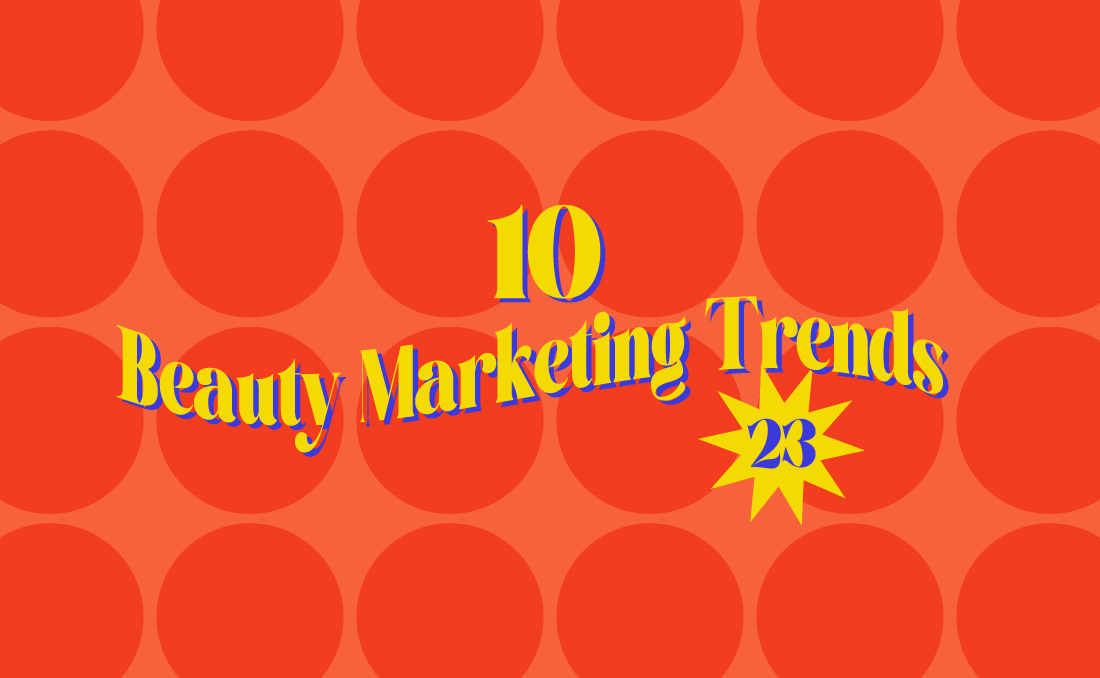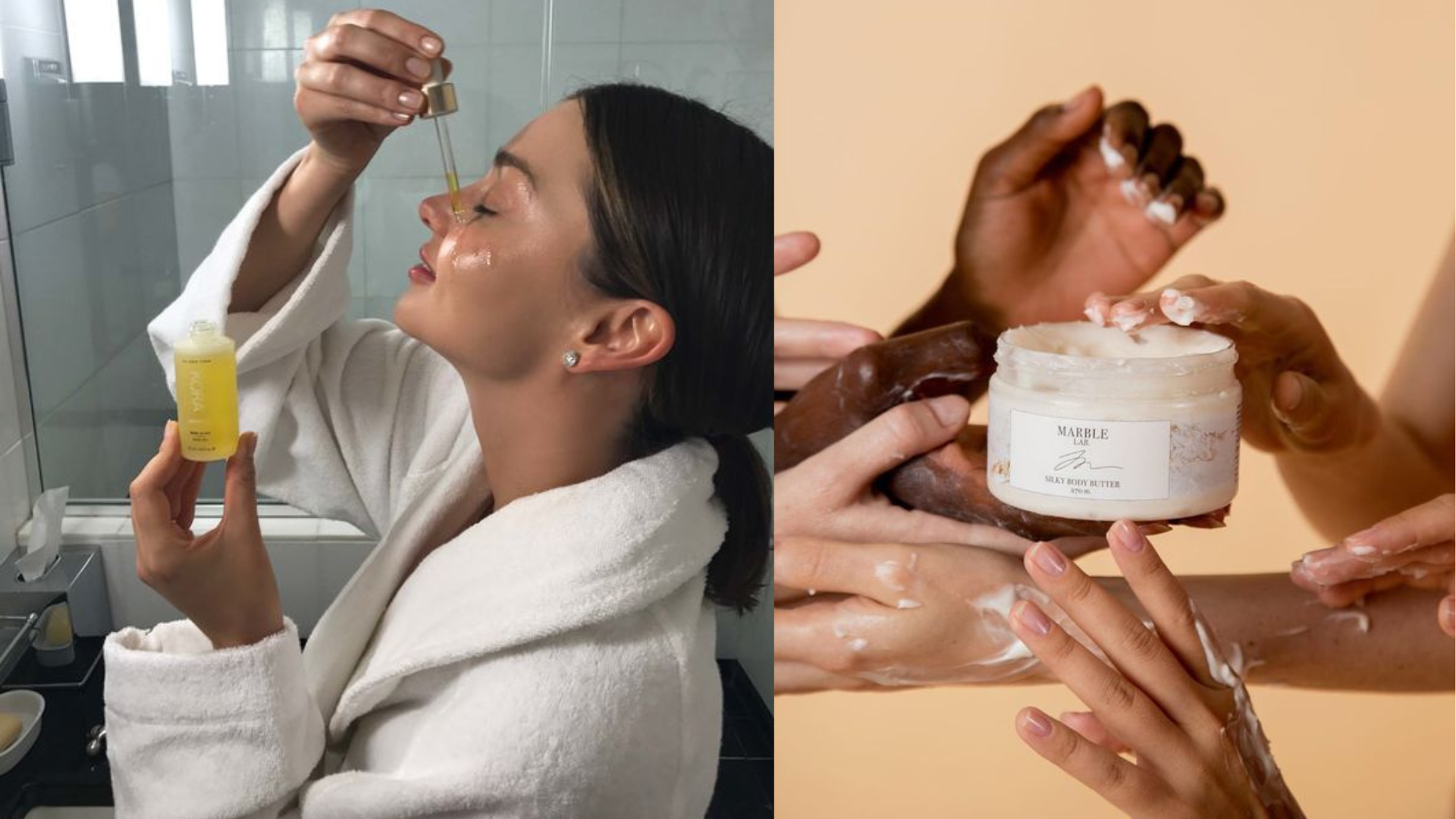Are you a beauty brand looking to stay ahead of the game in 2023? Look no further! In this article, we'll be discussing the top 10 marketing trends that beauty brands need to know in order to stay competitive and relevant in the coming year. From the rise of social commerce to the importance of inclusivity and sustainability, we'll explore the key strategies and tactics that will drive success in the beauty industry.
Buckle up and get ready to learn about the future of beauty marketing!
Industry Related Trends
Sustainability
Consumers are increasingly looking for personalized experiences, and this trend is expected to continue in 2023. Beauty brands can use data and technology to create personalized experiences, such as customizing products or offering personalized recommendations.
Influencer Marketing (add blog)
Influencer marketing will continue to be an important trend in 2023. For Beauty brands, Influencer Marketing should be a fundamental pillar of their Marketing Strategy and communication.
Read 10 Beauty & Fashion Influencers you need to know about in 2023
Inclusivity
Beauty standards are changing and year after year we are facing less taboos and stereotypes. Beauty brands that are inclusive are more successful afterwards.
Here are some things to have in mind:
-
Make products more accessible, by offering a wider range of shades.
-
Encourage open communication, so that customers feel comfortable and safe providing feedback.
-
Be authentic by avoiding cultural appropriation and be true to the diverse communities that you are trying to reach.
-
When it comes to recruitment, make sure you offer equal opportunities and your workforce reflects your customers.
Virtual and Augmented Reality
Virtual try-on: Beauty brands can use VR technology to create virtual try-on experiences, allowing customers to "try on" makeup and hairstyles using their smartphones. This can help customers make more informed purchasing decisions and increase sales.
Personalization
By using personalisation, beauty brands can provide a more engaging customer experience, increase brand loyalty and boost sales. Beauty brands can use data, such as a customer's browsing and purchase history, to make personalized product recommendations. This can be done through email, social media, or in-store kiosks
Digital Marketing-related Trends
.png?width=1920&height=1080&name=2%20(1).png)
- Social commerce
- Social commerce refers to the use of social media platforms to facilitate the buying and selling of products. As consumers increasingly use social media to research and purchase products, beauty brands will need to focus on building a strong presence on platforms like Instagram and TikTok, and developing strategies for direct sales through these channels.
- Social commerce refers to the use of social media platforms to facilitate the buying and selling of products. As consumers increasingly use social media to research and purchase products, beauty brands will need to focus on building a strong presence on platforms like Instagram and TikTok, and developing strategies for direct sales through these channels.
- Artificial Intelligence and Chatbots
- AI and chatbots can be used to improve the customer experience and increase sales. For example, beauty brands can use AI-powered chatbots to provide personalised product recommendations and assistance with the purchasing process. One example is the well-known Skin Type quiz, which assists customers in locating products that align with their concerns.
- AI and chatbots can be used to improve the customer experience and increase sales. For example, beauty brands can use AI-powered chatbots to provide personalised product recommendations and assistance with the purchasing process. One example is the well-known Skin Type quiz, which assists customers in locating products that align with their concerns.
- Voice Search Optimization
- Voice search optimization is becoming increasingly important, as more consumers use voice assistants, like Alexa or Siri, to search for products. Beauty brands will need to optimize their websites and content for voice search to ensure that their products are easily discoverable.
- Voice search optimization is becoming increasingly important, as more consumers use voice assistants, like Alexa or Siri, to search for products. Beauty brands will need to optimize their websites and content for voice search to ensure that their products are easily discoverable.
- Micro-moments
- Micro-moments refer to the small, everyday moments where consumers turn to their smartphones to make a quick decision or take action. Beauty brands will need to focus on creating relevant, timely content that can capture consumers' attention in these micro-moments. Such examples are Tik Tok videos and Instagram Reels that capture users’ attention from the very first second and provide information right away. Another example is sharing content via Stories, short videos with subtitles, so users can read through if they cannot listen.
- Micro-moments refer to the small, everyday moments where consumers turn to their smartphones to make a quick decision or take action. Beauty brands will need to focus on creating relevant, timely content that can capture consumers' attention in these micro-moments. Such examples are Tik Tok videos and Instagram Reels that capture users’ attention from the very first second and provide information right away. Another example is sharing content via Stories, short videos with subtitles, so users can read through if they cannot listen.
- Omnichannel Marketing
- Omnichannel marketing is a strategy that utilizes various communication channels, such as social media, email, and in-store, to connect with customers. For beauty brands, it is crucial to create a cohesive and consistent brand experience across all channels to foster customer trust and loyalty.
- Omnichannel marketing is a strategy that utilizes various communication channels, such as social media, email, and in-store, to connect with customers. For beauty brands, it is crucial to create a cohesive and consistent brand experience across all channels to foster customer trust and loyalty.


